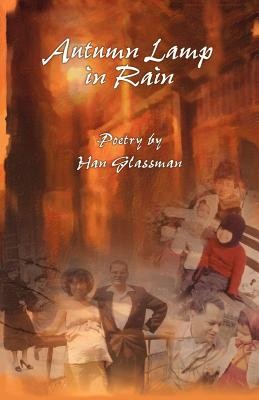
- We will send in 10–14 business days.
- Author: Han Glassman
- Publisher: Oliver Arts and Open Press
- ISBN-10: 0982987811
- ISBN-13: 9780982987810
- Format: 14 x 21.6 x 0.3 cm, minkšti viršeliai
- Language: English
- SAVE -10% with code: EXTRA
Reviews
Description
Han Glassman was born in Korea and grew up under the Japanese occupation, where she was forced to speak Japanese or be beaten, and suffered from starvation. As a result o fthe Second World War and the Korean War, she lost her two elder sisters and her entire college class. In America, she met a Romanian Jew named Frederic, a Holocaust survivor and refugee named Frederic, a Holocaust survivor and refugee from Communism who shared her love of music and literature. Their wartime experiences, commitment to family, and education held them together through a difficult immigrant experience. Though she lost him recently, they had two daughters and three grandchildren named after their beloved father and grandfather. Han also has a daughter in Korea and two grandchildren there. She writes in English so that people in the West can understand what happened in Asia during these wars. This book is the product of a family, written by a woman who lost her own first family and then built a new one. Consisting of lyrical poetry interwoven with prose, it is a twentieth-century story: A story of war, loss, immigration, and then the gradual transition to a new world of electronics, computers, acceleration in the pace of everything--and loneliness. The book has been a life-long work of the author's, edited first by her husband and then, as they grew up and matured, by her daughters. With its deft hand and unfailing delicacy of image, the book is reminiscent of haiku. Its author has always believed that a family is like a person. If one person is gone, what remains is like a person without a hand, or a heart.
- Author: Han Glassman
- Publisher: Oliver Arts and Open Press
- ISBN-10: 0982987811
- ISBN-13: 9780982987810
- Format: 14 x 21.6 x 0.3 cm, minkšti viršeliai
- Language: English English
Han Glassman was born in Korea and grew up under the Japanese occupation, where she was forced to speak Japanese or be beaten, and suffered from starvation. As a result o fthe Second World War and the Korean War, she lost her two elder sisters and her entire college class. In America, she met a Romanian Jew named Frederic, a Holocaust survivor and refugee named Frederic, a Holocaust survivor and refugee from Communism who shared her love of music and literature. Their wartime experiences, commitment to family, and education held them together through a difficult immigrant experience. Though she lost him recently, they had two daughters and three grandchildren named after their beloved father and grandfather. Han also has a daughter in Korea and two grandchildren there. She writes in English so that people in the West can understand what happened in Asia during these wars. This book is the product of a family, written by a woman who lost her own first family and then built a new one. Consisting of lyrical poetry interwoven with prose, it is a twentieth-century story: A story of war, loss, immigration, and then the gradual transition to a new world of electronics, computers, acceleration in the pace of everything--and loneliness. The book has been a life-long work of the author's, edited first by her husband and then, as they grew up and matured, by her daughters. With its deft hand and unfailing delicacy of image, the book is reminiscent of haiku. Its author has always believed that a family is like a person. If one person is gone, what remains is like a person without a hand, or a heart.


Reviews